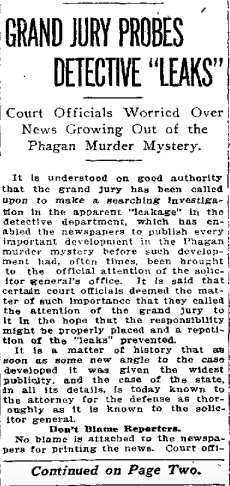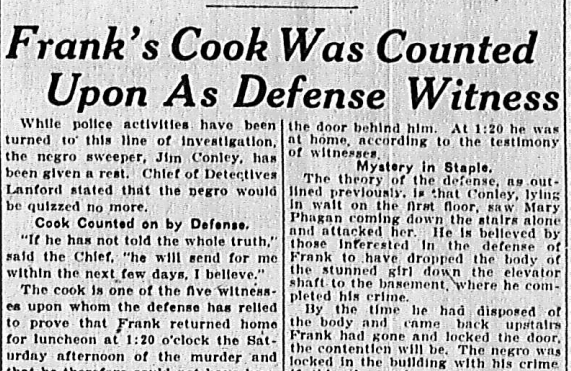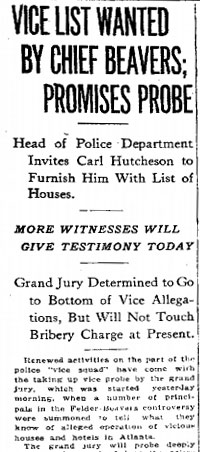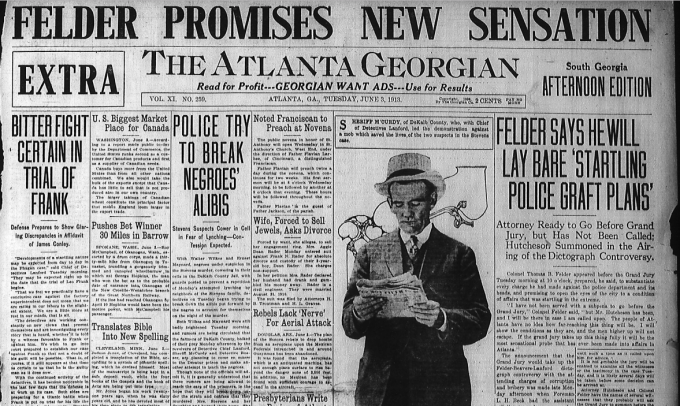Another in our series of new transcriptions of contemporary articles on the Leo Frank case.
Atlanta Constitution
August 4th, 1913
Secretary of State Board of Health Will Resume Testimony Interrupted by His Collapse on Last Friday.
STATE TO USE PHOTO OF SPOT WHERE BODY WAS FOUND BY NEGRO
Friends and Relatives Besiege Prisoner in Cell on Sunday. Shows Little Evidence of Strain of Trial, Say Jail Officials.
The state will open this afternoon’s session of the Frank trial with Dr. Roy Harris on the stand, it is stated, if the physician’s health is as much improved as it was on Sunday.
The solicitor had not finished his examination of Dr. Harris on Friday afternoon when he collapsed upon the stand and necessitated the support of Deputy Sheriff Plennie Miner in moving from the courtroom.
A sharp clash is expected between the state and defense over Dr. Harris’ testimony. In an exacting cross examination of Dr. J. W. Hurt Saturday morning, the defense proved that many of the opinions held by the two physicians were conflicting.
State Will Use Photo.
The solicitor has requested a reporter of The Constitution to produce in court this morning a photograph taken by The Constitution staff photographer on the morning of the discovery of the murder of the spot in the pencil factory basement at which Mary Phagan’s body was found. Just what use to which the picture will be put has not been divulged.
Continue Reading →


 Another in
Another in 







 Another in
Another in  Another in
Another in 
 Another in
Another in 



